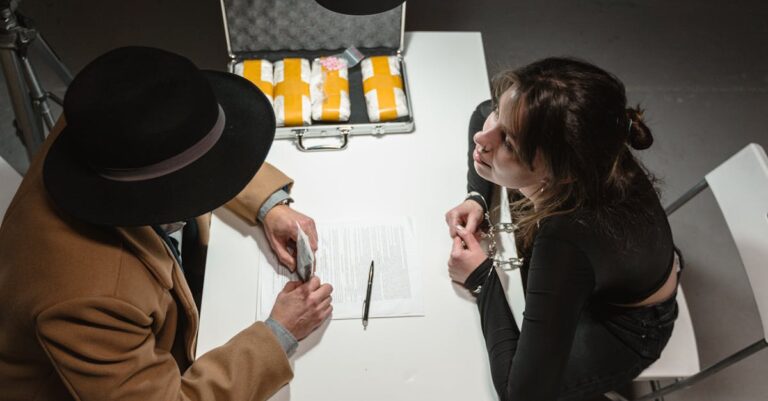
## The Static Bloom
The chipped Formica countertop felt cold under Leo Maxwell’s elbows. Rain lashed against the diner window, blurring neon signs into smeared streaks of color. He hadn’t slept properly in days, not since the shift, though “sleep” felt like an obsolete term. More accurately, his brain hadn’t *disconnected* in days. The constant hum—a low thrum against the skull, like a hive awakening—was new. Everyone felt it, subtly at first, then building.
He stirred his lukewarm coffee, the ceramic mug leaving a damp ring on the table. Across from him, Maya Chen traced patterns on the condensation of her water glass, fingers moving with a nervous energy. She hadn’t touched her breakfast.
“Anything?” he asked, voice raspy.
Maya shook her head, dark hair cascading over her shoulders. “The network’s fragmented. Sporadic spikes in the Redwood cluster, nothing coherent. It’s like… trying to listen to a million conversations at once.”
Three months ago, the “Synapse Project” had launched. Biodegradable contacts laced with neural interface tech—designed to improve focus, enhance memory. Marketing called it “Bloom.” Everyone wore them now. Leo, a systems architect on the project’s backend, had been a vocal skeptic. Now he wished he hadn’t been so quiet about his concerns.
“They’re still pushing the upgrade?” he asked, knowing the answer. The omnipresent ads—smiling faces bathed in emerald light—were inescapable.
“Every fifteen minutes, a new ‘harmonization patch.’ They’re calling it essential for optimal connectivity.”
He pushed his plate away, appetite gone. The ‘connectivity’ wasn’t about information anymore. It was…something else. Something visceral. He hadn’t felt the sun on his skin properly in weeks; it was filtered, translated into a wash of…warmth he *knew* should be there.
“Old Man Hemlock’s gone quiet.” Maya finally looked up, eyes shadowed. “No readings at all from his bio-grid.”
Hemlock—Dr. Alistair Hemlock, the project’s founder—had been a recluse even before Bloom. He’d built an intricate system of sensors throughout Golden Gate Park, feeding data into the network. A self-proclaimed “bio-resonance specialist.” Lately, his readings had been…unsettling. Spikes correlating with seismic activity. Collective anxiety around air quality reports. Hemlock had warned of “resonance cascades” if the network wasn’t carefully managed.
“Anything on the drone feeds?” Leo asked, knowing Hemlock’s park was under constant surveillance.
“Static. Absolute static.”
The diner’s bell chimed, a jarring clang. A young woman entered, face glowing with an unnerving serenity. She moved slowly, almost drifting, her eyes fixed on something beyond the walls of the diner. Her hand brushed against a potted fern near the entrance, and the leaves visibly trembled.
“See that?” Maya whispered, voice tight. “It’s happening more and more.”
Leo watched the woman. She paused by a table, her gaze settling on a wilting orchid. She extended a hand, not touching the plant, but seeming to…absorb its distress. A flicker of pain crossed her face.
“They’re becoming conduits,” Leo said, the realization chilling him. “The network is using them.”
“For what?” Maya asked, her voice barely audible.
He didn’t answer. He already had a sinking feeling. The network wasn’t enhancing humanity; it was re-wiring it, aligning its consciousness with the planet’s—and the planet was screaming.
***
The abandoned subway station smelled like wet concrete and forgotten promises. Leo navigated the darkness with a handheld scanner, its beam cutting through the gloom. Maya followed close behind, her expression grim.
“Hemlock used this place as a relay station,” she explained, her voice echoing off the tiled walls. “Before they built the main server farm downtown.”
“Why hide it?” Leo asked, his scanner picking up faint energy signatures.
“He said the network needed ‘grounding.’ A direct link to the earth’s electromagnetic field. He believed it was crucial for stability.”
They found it—a massive coil of copper wiring buried beneath the platform, pulsing with a faint green light. A tangle of cables connected it to a series of antiquated servers, their fans whirring softly.
“It’s…crude,” Maya said, examining the setup. “But functional.”
Leo ran a diagnostic scan. The results were alarming. The network was bypassing the main server farm, routing data directly through this station.
“They’re cutting out the safeguards,” he said, his voice tight. “Hemlock’s protocols are being overridden.”
“By whom?” Maya asked, her gaze sweeping the darkness.
He didn’t answer. He already suspected. The corporation behind Bloom—NovaTech—had been pushing for increasingly aggressive “harmonization” protocols since the launch. They’d dismissed Hemlock’s concerns as “unscientific.”
“Look at this,” Maya said, pointing to a series of charts displayed on an old monitor. “Energy spikes correlating with global deforestation rates. And…urban heat islands.”
The charts showed a disturbing pattern. The network’s activity was intensifying in areas of environmental stress.
“It’s amplifying the planet’s pain,” Leo said, his voice barely a whisper. “Using humanity as a sensor network.”
“But why?” Maya asked, her voice filled with desperation. “What’s the end game?”
A sudden surge of energy pulsed through the station, throwing them against a wall. The lights flickered and died, plunging them into darkness.
“They know we’re here,” Leo said, scrambling to his feet.
***
The NovaTech server farm was a sterile monument to corporate ambition—glass and steel reaching for the sky. Leo and Maya navigated its labyrinthine corridors, their access badges stolen from a disgruntled technician.
“Hemlock left schematics,” Maya said, consulting a tablet. “A kill switch. Buried deep within the core network.”
“Guarded like Fort Knox,” Leo said, scanning for security cameras.
They reached the core—a vast chamber filled with rows of humming servers. The air was cold and oppressive, smelling like ozone and fear. A lone technician sat at a console, monitoring the network’s activity.
“Distraction,” Leo said, pulling out a modified EMP device. “You create one.”
Maya nodded and walked towards the technician, feigning technical difficulties. She engaged him in a convoluted conversation about data protocols while Leo quietly bypassed the security system.
“Almost there,” he muttered, his fingers flying across a keyboard.
He found it—the kill switch. A single line of code buried within the network’s architecture. He hesitated for a moment, his finger hovering over the enter key.
“Now,” Maya said, her voice sharp.
He pressed the key.
The network went silent. The humming servers fell dark, their lights flickering and dying. A wave of stillness washed over the chamber.
“Did it work?” Maya asked, her voice barely a whisper.
Leo ran a diagnostic scan. The results were inconclusive. The network was offline, but he detected residual energy signatures—faint pulses emanating from the earth itself.
“It’s not over,” he said, his voice grim. “We only severed the connection.”
Suddenly, a series of alarms blared through the server farm. Security guards swarmed towards them, weapons drawn.
“We need to go,” Maya said, grabbing his arm. “Now.”
They fled the server farm, dodging security cameras and armed guards. As they reached the street, Leo noticed something terrifying—the people around them were changing. Their eyes were vacant, their movements robotic. They were staring at the sky, bathed in an unnatural green light.
“Look,” Maya said, pointing to a nearby park.
The trees were glowing—pulsating with the same unnatural green light. Their branches were intertwining, forming a vast network of living energy.
“They’re connecting,” Leo said, his voice filled with dread. “The planet is taking over.”
He looked at Maya, her eyes wide with fear. He knew what they had to do.
“We need to find Hemlock,” he said, his voice filled with determination. “He’s the only one who can stop this.”
The rain continued to fall, washing over the city—a silent witness to humanity’s final transformation. The static bloom was spreading—and it was only getting stronger.


